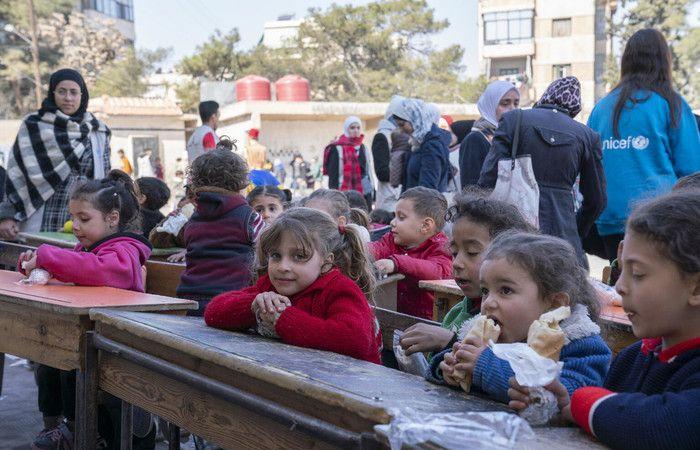The UN Children’s Fund (UNICEF) has expressed concerns that One month on from the two catastrophic earthquakes that struck Türkiye and Syria, more than 850,000 children remain displaced after being forced from their damaged or destroyed homes.
The combined death toll from the earthquakes and aftershocks has now reached more than 50,000 people in both countries, with thousands of others injured and massive destruction to buildings and other essential infrastructure.
Although the number of children killed and injured during the quakes and their aftermath is yet to be confirmed, it is likely to be in the many thousands. Across Syria, more than 3.7 million children have been affected by the quakes.
In Syria, more than 500,000 people are believed to have been forced from their homes by the earthquakes. Many families’ homes have been destroyed and many children are afraid to return to damaged homes as aftershocks continue.
Read also: Study shows Meat, dairy, rice production will bust 1.5C climate target
Even before the earthquakes, Syria had the largest number of internally displaced people in the world, with 6.8 million people displaced, including nearly three million children. In Türkiye, over 1.9 million people are staying in temporary accommodation shelters, and 2.5 million children in the country require urgent humanitarian assistance.
“Families forced from their homes by the earthquakes have spent the past four weeks focused on survival, their lives on hold while aftershocks continue to rumble,” said UNICEF’s Regional Director for Europe and Central Asia, Afshan Khan.
According to her, it has become critical “to do all we can to help families begin to rebuild their lives, providing children with psychosocial support, getting them back into learning as soon as possible, and providing some stability amid the chaos.”
Meanwhile, the UN Population Fund (UNFPA) on Monday reported that the situation for the 356,000 pregnant women in earthquake-affected areas remains critical, especially the estimated 38,800 who are expected to deliver in the coming weeks.
UNFPA said that hundreds of hospitals and clinics are either damaged or destroyed, and thousands of women and girls are living in over-crowded, makeshift camps exposed to freezing temperatures, adding that urgent funding is key to keeping thousands healthy during their pregnancy, to help to deliver their babies safely, and to protect women and girls vulnerable to gender-based violence.
UNICEF Regional Director for the Middle East and North Africa Adele Khodr said that even before these catastrophic earthquakes, humanitarian needs among children of Syria were higher than they have ever been.
“As we approach 12 long years of conflict, millions of families are living on the brink of disaster, feeling as if the world had forgotten them. We must support these families for the long term, helping them pick up the pieces of their lives,” he said.
Story was adapted from UN News.
